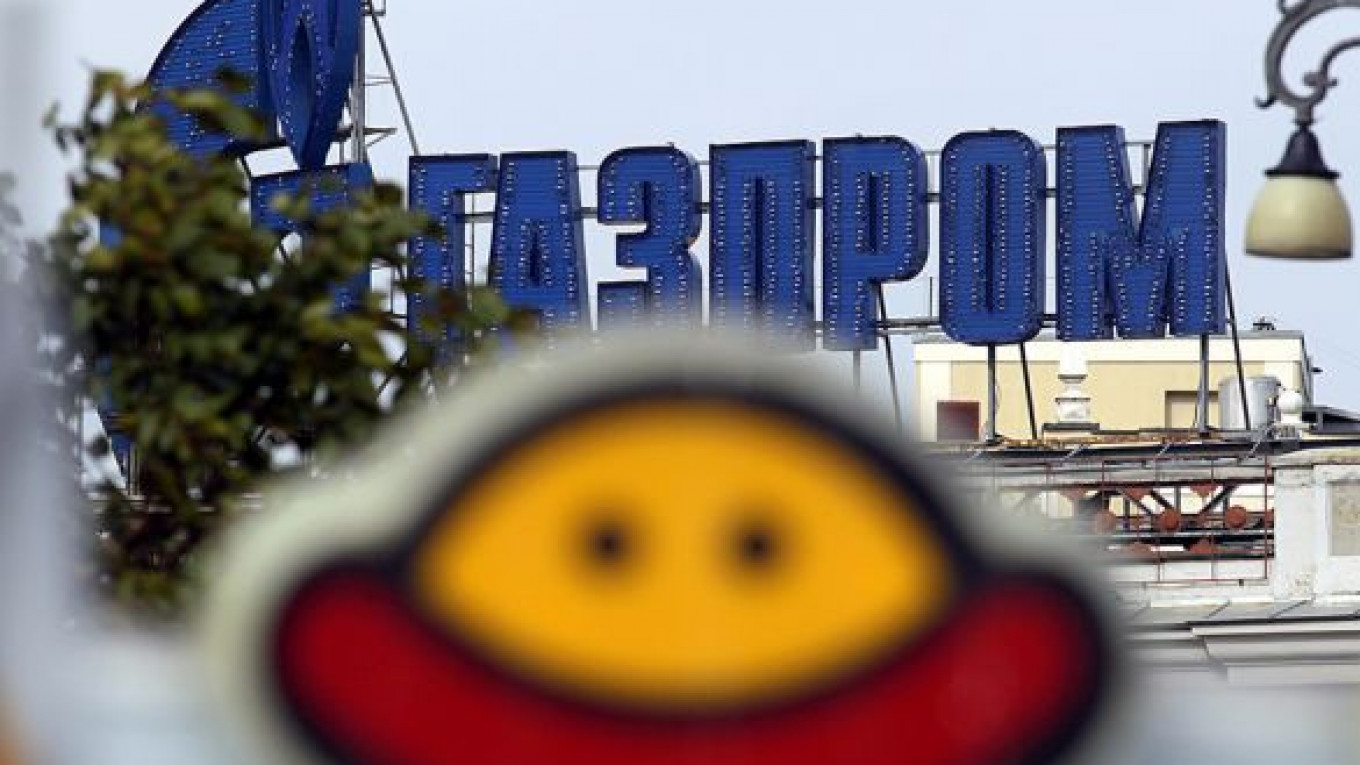Gazprom has struggled to sell liquefied natural gas in Europe this year, sending cargoes of the chilled fuel to Asia as it seeks to become a global supplier.
"It's not that we don't like Europe or don't want to supply LNG there," Frederic Barnaud, director of LNG at the company's London-based Gazprom Marketing & Trading unit, said in an interview with World Gas Intelligence, published on the unit's web site. "Today both demand and margins are in Asia."
Gazprom has said it wants to boost its share of global LNG trade to 9 percent by 2020 from about 2 percent last year. Its Shtokman venture with Total and Statoil delayed investment decisions until December after demand for LNG in the United States, the main target market, fell because of shale gas output. The Arctic venture has also named Europe as a potential LNG market.
Gazprom Marketing & Trading plans to trade up to 3 million tons of LNG this year, securing "less than half" of the fuel from the Gazprom-controlled Sakhalin-2 project, Barnaud told WGI. The rest will be supplied from Egypt, Nigeria, Qatar and Australia, and reloaded from the United States, he said.
"Nowadays we don't do much business in Europe or in the Atlantic Basin," Barnaud said. "If this winter demand peaks in Europe and matches our expectations to keep some — maybe Egyptian — cargoes in Europe, then we will do it."
The trading unit ended a short-term agreement with Petroliam Nasional for the use of the Dragon LNG terminal in Britain, he said. The company will use third-party access for potential LNG imports to northwestern Europe, he said.
The unit has been "very successful in Asia" this year, marketing the fuel in Kuwait, Thailand, Japan, Korea, Taiwan, China and India, he said.
Deals to supply Indian companies will be completed "in the weeks and months ahead," indexing the prices to oil, Barnaud said.
The unit aims to boost volumes to as much as 35 million tons in five to 10 years after placing in the market LNG from Shtokman and the expansion of Sakhalin-2, he said.
A liquefied natural gas terminal covering the needs of the three Baltic countries and possibly Finland would cost about 375 million euros ($510 million), Estonian Economy Minister Juhan Parts said, citing a report by a unit of Finnish engineering company Poyry.
A regional LNG terminal would have an annual output capacity of 2.5 billion cubic meters, Parts said Monday in parliament in Tallinn, adding that the estimates are preliminary.
Gazprom is the sole supplier of natural gas to Estonia, Latvia and Lithuania. The Baltic countries are seeking EU support for building an LNG terminal in the region, citing higher gas prices than in Western Europe and supply risks. They have yet to agree on a single location.
A Message from The Moscow Times:
Dear readers,
We are facing unprecedented challenges. Russia's Prosecutor General's Office has designated The Moscow Times as an "undesirable" organization, criminalizing our work and putting our staff at risk of prosecution. This follows our earlier unjust labeling as a "foreign agent."
These actions are direct attempts to silence independent journalism in Russia. The authorities claim our work "discredits the decisions of the Russian leadership." We see things differently: we strive to provide accurate, unbiased reporting on Russia.
We, the journalists of The Moscow Times, refuse to be silenced. But to continue our work, we need your help.
Your support, no matter how small, makes a world of difference. If you can, please support us monthly starting from just $2. It's quick to set up, and every contribution makes a significant impact.
By supporting The Moscow Times, you're defending open, independent journalism in the face of repression. Thank you for standing with us.
Remind me later.






